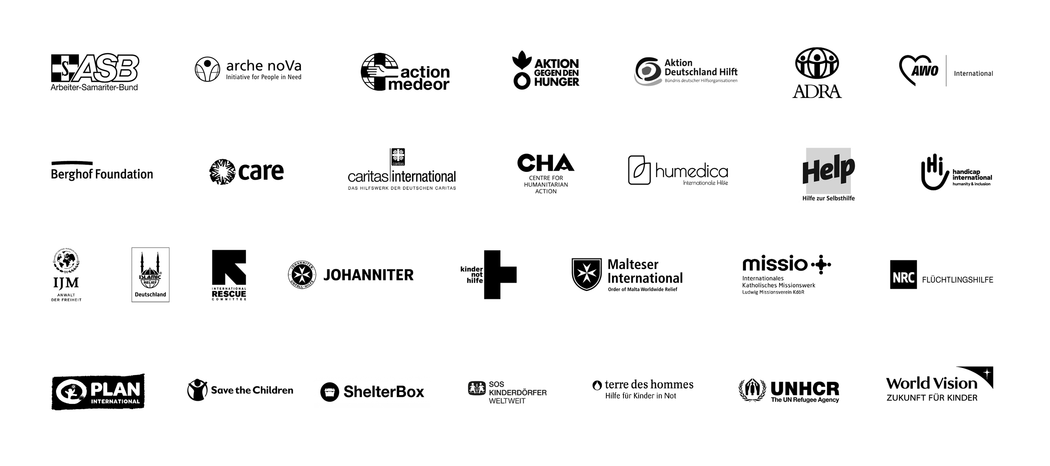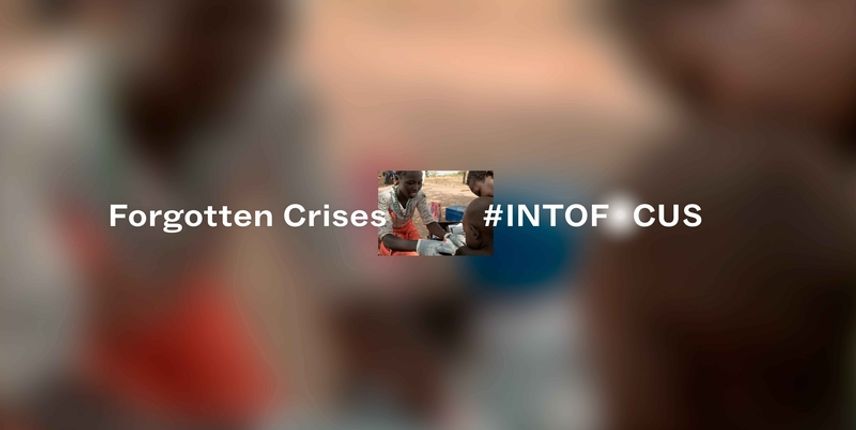
Forgotten crises - more attention to people in need
In the digital age, news travels faster than ever before. The first days and weeks following the outbreak of a humanitarian disaster often bring with them continuous and comprehensive media reports from the crisis region, and the catastrophe is a focus of public consciousness. This is usually followed by a gradual shift of media interest to other topics of interest, and a reduction of public interest, and with it, public support for aid. The people on the ground, however, continue to be in a state of emergency.
It is precisely such long-term humanitarian crises that require particular attention because the affected populations are usually amongst the most impoverished and vulnerable. For these population groups, international aid is particularly crucial and more intensive efforts to resolve existing conflicts is urgently needed.
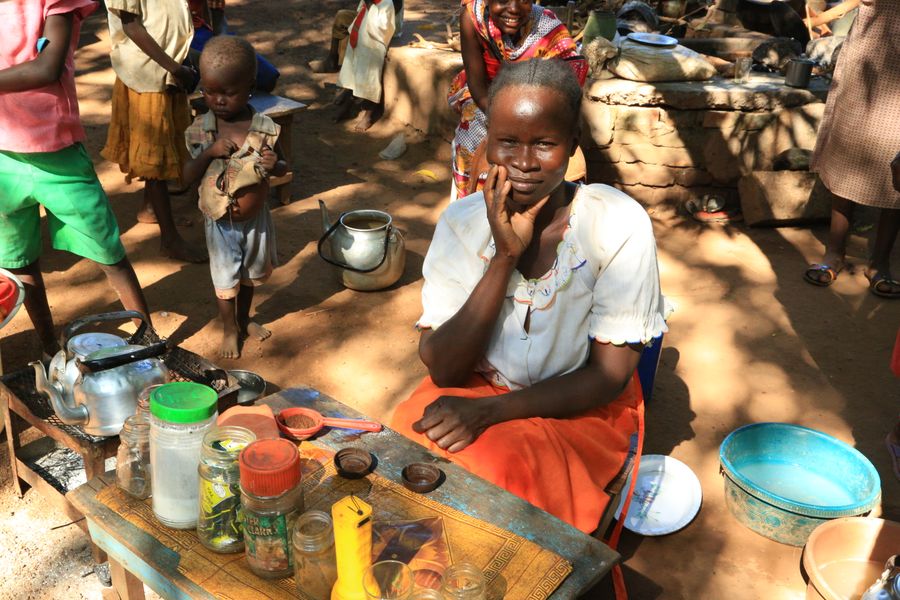
What are forgotten crises?
The European Union’s Humanitarian Aid and Civil Protection department (ECHO) defines a forgotten crisis as a severe and protracted humanitarian crisis situation caused, e.g., by a natural disaster, climate change, armed conflict, economic crisis, or often a combination of multiple causes. The already poor and vulnerable population therein receives little to no international aid, and the crisis situation receives little media coverage.
Media coverage plays an essential role in the management of humanitarian disasters, because it serves as the primary means of raising awareness among a significant number of potential donors and contributors. In this way, media coverage helps to mobilize the necessary funds for aid projects and to put them into action.
Since 2004, the Forgotten Crisis Assessment (FCA) has been in place, whereby ECHO provides a list of forgotten disasters and crises each year. In the years 2022 and 2023, 15 crises were identified in Africa, Asia, Latin America and the Caribbean. The aid organization Care also presents the ten humanitarian crises that have received the least media attention each year in its ‘Breaking the Silence Report’.
Nationwide campaign - forgotten crises #IntoFocus
In order to bring forgotten humanitarian crises back into the public eye, Malteser International has joined forces with around 30 other aid organizations to participate in the nationwide #IntoFocus campaign, initiated by the German Federal Foreign Office. The aim of the campaign is to increase the visibility of global emergencies and generate greater public interest in them so that people in need receive urgently needed support.
The week of action will take place nationwide from May 6 and is intended to provide information about the humanitarian situation in the three campaign countries Lebanon, South Sudan and Bangladesh. Various events are planned as part of the action week, which will also be supported by celebrities such as actor Benno Fürmann and rapper MoTrip, who was born in Lebanon. Together with representatives of various aid organizations, the two will travel to Lebanon at the end of April to get a first-hand impression of the situation and aid projects on the ground.
Forgotten disasters and crises in focus: our project countries
Bangladesh
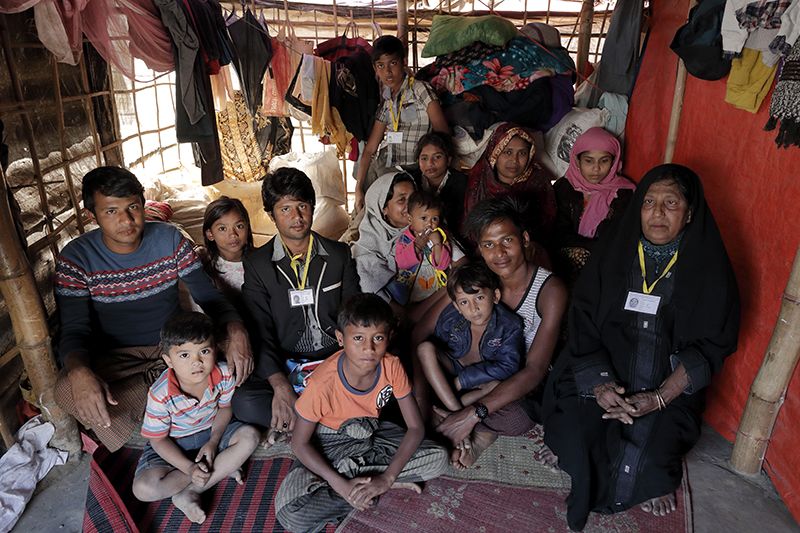
The refugee camp in the Cox's Bazar district is the largest refugee camp in the world with around 900,000 people. Since 2017, most of the refugees from Myanmar have been staying here - without hope of returning to their home country in the near future. The living conditions in the camp are dreadful. Due to the high population density, diseases can spread quickly and easily. There is a lack of sufficient water and food supplies, adequate housing, and sanitation facilities. At the same time, access to health care and education is limited. Natural disasters such as floods or fires leave the camp residents unprotected. As recently as March 2023, a major fire destroyed more than 2,000 shelters.
Malteser International has been providing support in the areas of health, water, hygiene and nutrition together with local partners since the beginning of the refugee crisis in 2017 in order to improve the living conditions for refugees and the local population. In health centers, we provide people with medical care, psychosocial support and also carry out health and hygiene training.

Lebanon
Extreme poverty, food insecurity and overburdened health systems: For years, the people of Lebanon have been suffering from the ongoing financial crisis and political instability in the country. People in the capital Beirut are also still struggling with the consequences of the devastating explosion disaster in 2020.
Our aim is to enhance the long-term resilience of the population and improve overall health and healthcare by promoting local agriculture to achieve better nutrition in the country. Furthermore, we are committed to creating a cooperative medical network and training expert personnel, as well as promoting the capacities and structures of our local partner in the health sector and the operation of various health centers.
South Sudan
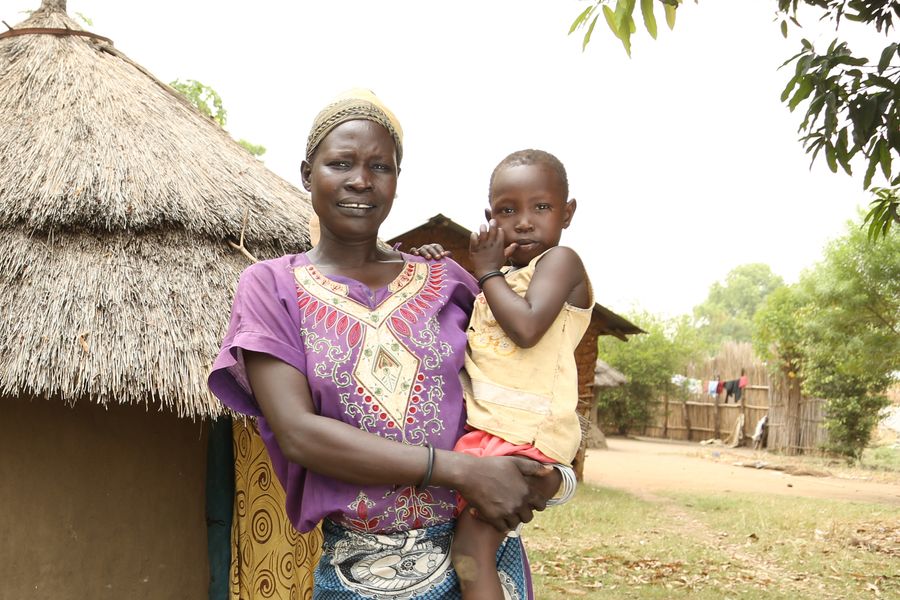
The people of South Sudan are struggling with many crises. Currently, the population is suffering from high inflation and economic imbalances. Even years after the end of the civil war, infrastructure has still not been restored in many regions of South Sudan. The impacts of climate change, such as floods and droughts, and ongoing violence between pastoralists and farmers are forcing many South Sudanese to flee to other areas of the country. As a result, the increased demand for water and food supplies adds further strain on an already scarce supply of resources. Thus, there is a high prevalence of hunger, malnutrition and undernourishment - a large part of the population is food insecure and children in particular are dependent on treatment due to acute malnutrition. There is also a high risk of contracting diseases such as cholera or measles.
We are committed to improving water, sanitation and hygiene in various aid projects, for example by constructing wells and household latrines and rebuilding water supplies in schools and communities. Food security is another key aspect of our work in South Sudan. Here, we support families in cultivating their fields and provide training on seed multiplication and farming practices.

